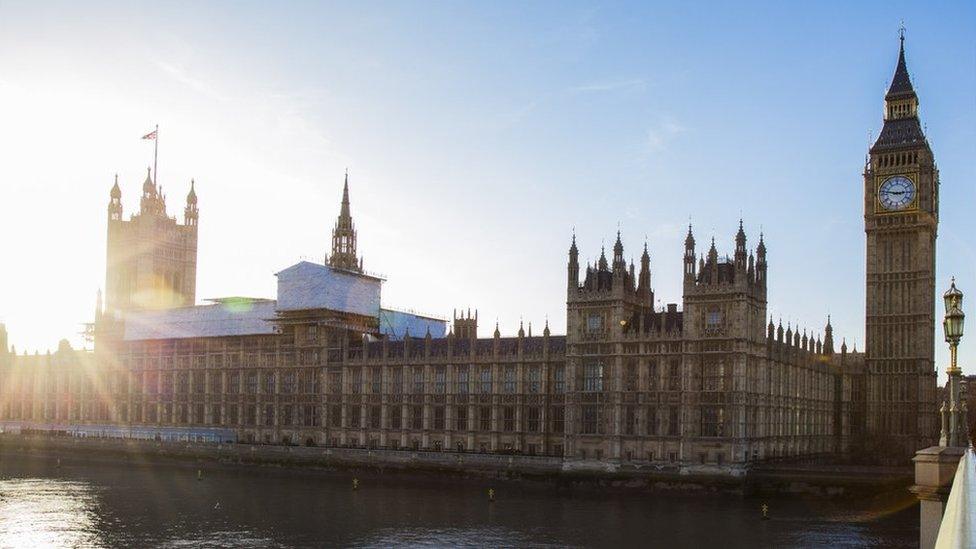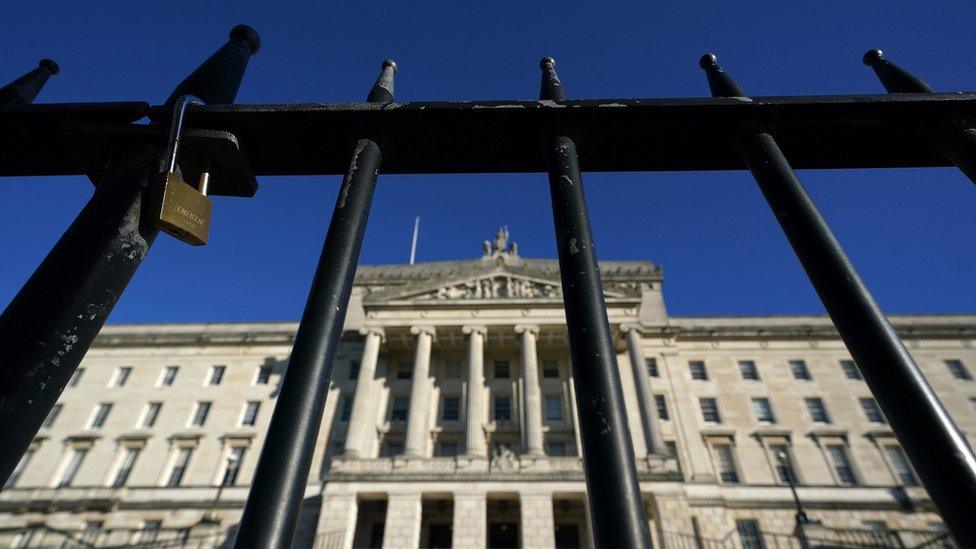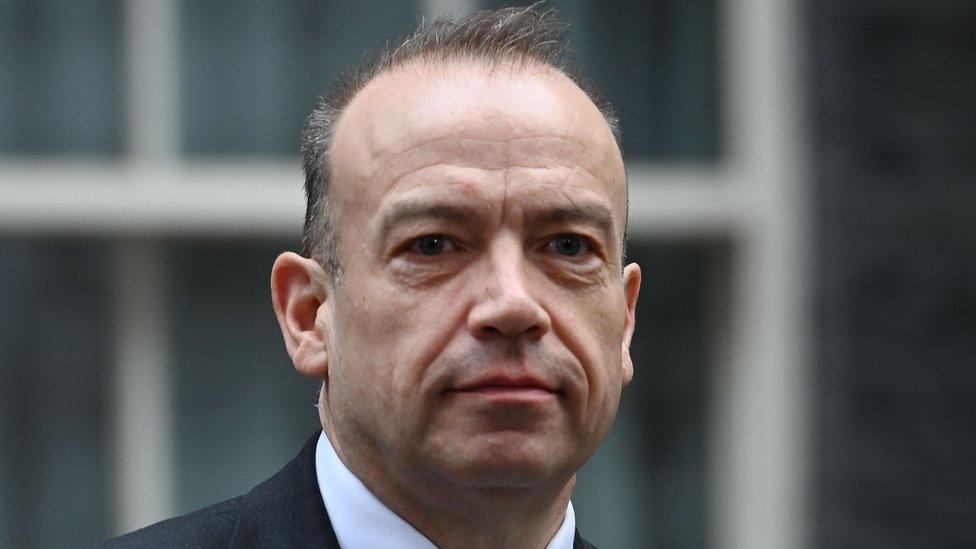Stormont pay cut bill being fast-tracked through Westminster
- Published

The bill will face just one day of scrutiny from MPs
Northern Ireland Secretary Chris Heaton-Harris has said he will "act rapidly" to cut assembly members' wages once new legislation takes effect.
He was speaking as MPs debated a bill that will give him powers to impose a pay cut.
The Executive Formation Bill, external is being fast-tracked through Parliament.
Chris Heaton-Harris introduced it last week, as the Stormont executive had not been restored.
The bill will extend the time period for parties to return to power-sharing government at Stormont.
Mr Heaton-Harris said he understood why the public was "quite cross" that assembly members were drawing full pay while unable to do their job properly.
The bill could see wages cut by 27%, or just over £14,000, reducing their incomes from £51,500 to £37,337.
It will face just one day of scrutiny from MPs.
Alliance deputy leader Stephen Farry said cutting MLA wages was the "right thing to do".
But he added that the Northern Ireland secretary should be directing any reduction solely at the Democratic Unionist Party (DUP) for "blocking restoration".
While Social Democratic Labour Party (SDLP) MP Claire Hanna argued that "DUP intransigence cannot be rewarded" by further interventions from London.
"Those who vote for this party (the DUP) to protect the union should take a strong look at what they're getting."
The bill will now move to the House of Lords for further scrutiny before becoming law.
No amendments from MPs went to a vote on Tuesday evening.
Instead the government said it would remain in touch with parties and consider changes to the bill where necessary.

Assembly members have continued to receive their £51,500 salary despite the Stormont stalemate
If the DUP refuses to end its boycott of the Stormont institutions by 8 December, the bill will give Mr Heaton-Harris the option to either call an election - which would be for some time between mid-January and the beginning of March - or extend the deadline by six weeks to 19 January.
If nothing changes by then, an election could take place by 13 April.
Allow X content?
This article contains content provided by X. We ask for your permission before anything is loaded, as they may be using cookies and other technologies. You may want to read X’s cookie policy, external and privacy policy, external before accepting. To view this content choose ‘accept and continue’.

Opening the debate on Tuesday, Mr Heaton-Harris said he did not want to be in the position of taking such steps, but had been left with no other options due to the ongoing stalemate.
"We recognise this bill is a stop-gap and is not intended to be a long-term solution to the issues Northern Ireland is facing - that is a matter for locally-elected politicians," he said.
Mr Heaton-Harris previously said he would be able to use the power from mid-December, but he has not yet named a specific date he would implement such a cut.
The legislation will also clarify the "limited decision-making" powers that civil servants now have in the absence of ministers.
Extra provisions are also being made to allow a regional rate to be set, should an executive not be in place, as well as powers for the approval of some public appointments.

Mr Heaton-Harris previously said he would be able to use the power from mid-December
DUP leader Sir Jeffrey Donaldson accused the EU of being the "biggest culprit" in the row over the Northern Ireland Protocol.
He told the Commons that while some MPs may wish to "punish the DUP" by cutting MLA salaries, it would not make any difference to his party's stance.
Speaking to reporters in Coalisland, Sinn Fein vice-president Michelle O'Neill questioned what efforts the Northern Ireland secretary had made to restore power-sharing.
"He bought time to restore the executive, but I haven't seen hide nor hair of Chris Heaton-Harris, so what is he doing?
"What progress is he and the government making to make the protocol work and find an agreed way forward with the EU?"
Northern Ireland has been without a functioning government since February as the DUP has refused to return to power-sharing in protest over the Northern Ireland Protocol.
Unionist politicians argue the post-Brexit trading arrangement undermines Northern Ireland's position in the UK.
It keeps the region aligned with some EU trade rules to ensure goods can move freely across the Irish land border.
Despite an assembly election in May - in which Sinn Féin won the largest number of seats - and four attempts to elect an assembly speaker, the DUP continued to refuse to nominate executive ministers.
The UK and EU remain in talks about the protocol, in the hope of getting a deal to suit both sides.
Related topics
- Published21 November 2022
